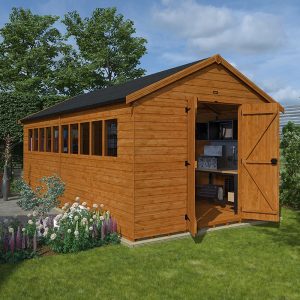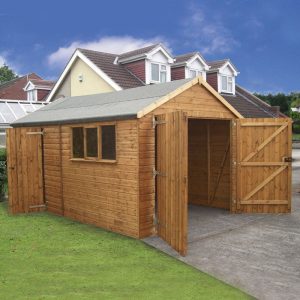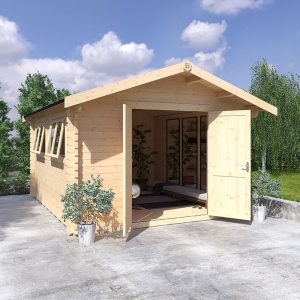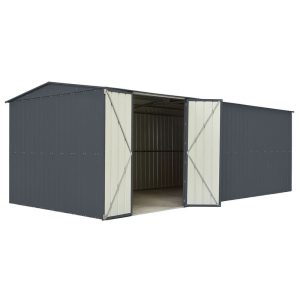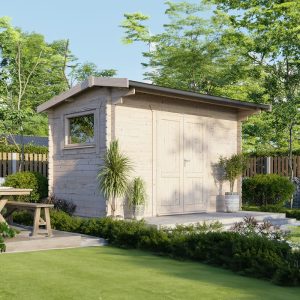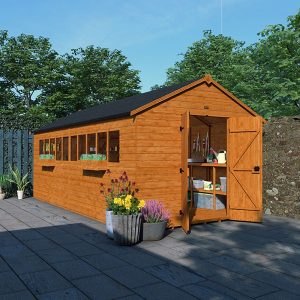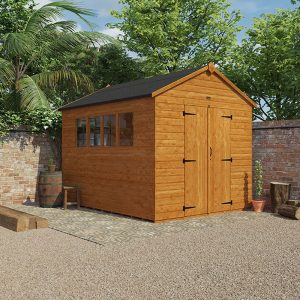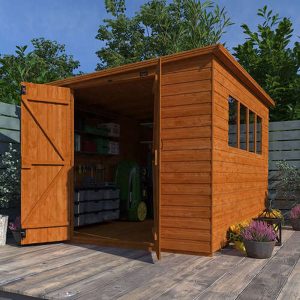Among the offerings from Rowlinson, the Apex Workshop stands out as a versatile extension to any outdoor area. Its functionality and modern aesthetics make it suitable for various uses such as a home workspace, personal retreat, or spacious storage solution. Highlighting robust 12mm shiplap cladding and a sturdy tongue and groove base, this workshop guarantees durability. Equipped with clear styrene windows running along the side, the interior is naturally illuminated. The workshop is designed with expansive double entryways to facilitate the hassle-free movement of bulky objects in and out of the structure, and they are secured by a reliable lock system. With its availability in multiple dimensions, there is a broad assortment of sizes to select from, ensuring flexibility for spatial constraints.








